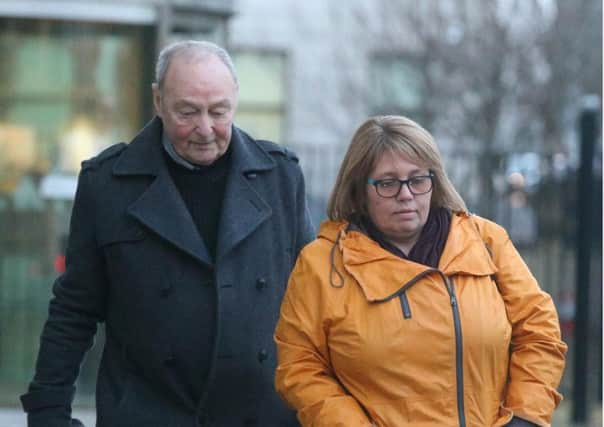Shooting of man by Army in 1971 was not justified '“ ruling


The soldier who fired the fatal shot had not aimed at any individuals deliberately but had acted recklessly by firing into a crowd at close range, coroner Joseph McCrisken found.
Joseph Parker, 25, was fatally shot in the thighs after a patrol of soldiers entered the dance at Toby’s Hall in the Ardoyne area of the city.
Advertisement
Hide AdAdvertisement
Hide AdHe had an 18-month-old daughter and his wife was heavily pregnant with their second child at the time of his death.
A coroner’s court in Belfast was told that on the evening of Mr Parker’s death, around 100 people were at the dance when soldiers entered in search of an individual who they wished to speak to.
Witnesses told the court that the atmosphere became hostile as some members of the crowd shouted at the soldiers to get out. Some chairs were knocked over and bottles broken, the court heard.
As tensions escalated, a soldier fired shots at the ceiling, prompting those present in the hall to duck to the ground.
Advertisement
Hide AdAdvertisement
Hide AdAnother soldier then shot into the crowd while he was in a crouching positing, hitting Mr Parker in his thighs.
Coroner McCrisken told the court: “I am satisifed that this shot was fired deliberately but that Mr Parker was not deliberately targeted, in other words, this soldier was acting recklessly when he fired shots at such a low level in a hall full of civilians.
“I have not been presented with any evidence which suggests that Mr Parker posed any threat, either direct or indirect, to the military patrol.”
He concluded: “I am satisfied, therefore, that the force used against Joseph Parker was not justified since he posed no threat to members of the patrol.”
Advertisement
Hide AdAdvertisement
Hide AdIn his findings, Mr McCrisken said that the atmosphere in Northern Ireland was extremely tense at that time, with a considerable number of people feeling hostile towards the Army amid backlash to UK Government policies such as internment.
He said: “I am entirely satisfied that the atmosphere was tense and extremely hostile toward the soldiers.”
Mr McCrisken said the patrol had not realised how many people would be in the hall due to poor planning.
“This lack of planning not only risked the lives of those members of the patrol who went inside but also civilians who were already inside,” he said.
Advertisement
Hide AdAdvertisement
Hide AdHe said the patrol captain should have realised this risk after the troops entered the hall and were met with a large number of people and a hostile response.
“[He] probably should have reassessed the situation and the risk posed to his patrol and those civilians present.
“The situation in the hall can best be described as a powder keg. The military presence ignited the fuse with tragic consequences.”
An inquest was held into Mr Parker’s death in 1972 which recorded an open verdict. After an investigation by the Historical Enquiries Team in 2009, a fresh inquest was ordered into the killing.
Advertisement
Hide AdAdvertisement
Hide AdMr Parker’s wife, Dorothy, has since died. Their two daughters Joanne and Charlene were present in court throughout the inquest, which took place over a period of two weeks in November.
Following the findings, the family’s lawyer Padraig O Muirigh read a statement outside court on behalf of the family.
It said: “Today we are elated that our father’s name has been cleared and our only regret is that our mum is not here to witness it.”
Mr O Muirigh added that the family are now considering whether to bring a civil case against the Ministry of Defence in light of the inquest findings.